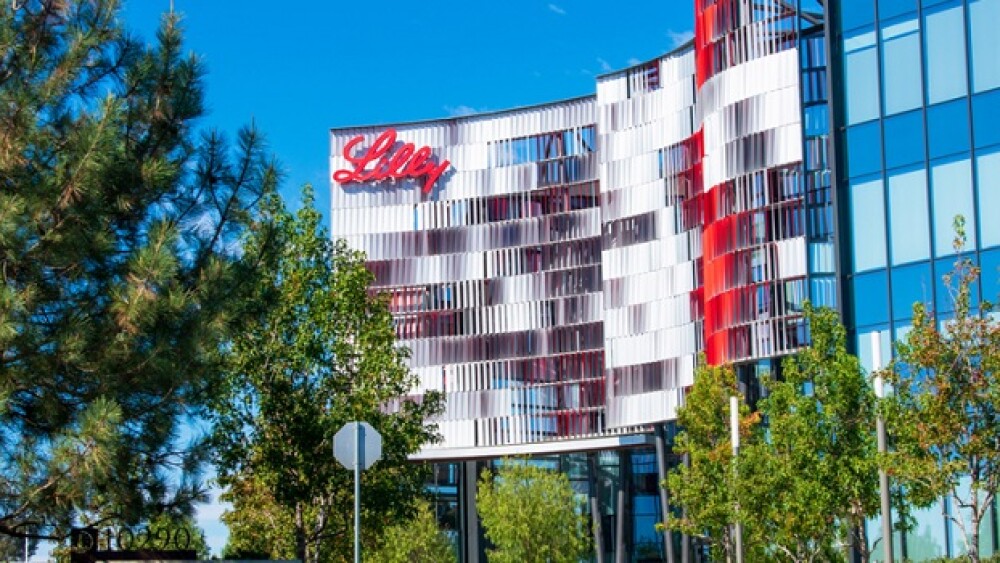WAYNE, N.J. and EMERYVILLE, Calif., Oct. 30 /PRNewswire-FirstCall/ -- Bayer HealthCare Pharmaceuticals and Onyx Pharmaceuticals, Inc. today announced that the European Commission has granted marketing authorization to Nexavar(R) (sorafenib) tablets for the treatment of patients with hepatocellular carcinoma (HCC), the most common form of liver cancer. Nexavar, an oral anti-cancer drug, is the first approved systemic therapy for HCC and the only one shown to significantly improve overall survival in patients with the disease. Additional regulatory filings for HCC are under review in countries around the world including the United States and, most recently, Japan. Nexavar is currently approved in more than 60 countries for the treatment of patients with advanced kidney cancer.
“The approval of Nexavar, a novel multi-kinase inhibitor, represents an unprecedented advance for patients with HCC who, until now, had no approved systemic treatment options,” said Arthur Higgins, chairman of the Executive Committee of Bayer HealthCare. “This milestone will likely establish Nexavar as the standard systemic therapy for the treatment of HCC and shows the dedication of health authorities to make Nexavar available as quickly as possible. Most importantly, it allows us to offer patients and medical professionals the potential to improve treatment outcomes for this devastating disease.”
“Liver cancer is one of the cancers in which the number of related deaths continues to increase,” said Hollings C. Renton, chairman, president and chief executive officer of Onyx Pharmaceuticals, Inc. “This second approval for Nexavar -- first in advanced kidney cancer and now, less than two years later in HCC, demonstrates our commitment to expediting the clinical development of this innovative therapy to treat today’s unmet needs in cancer. We will move swiftly to make Nexavar rapidly available to patients.”
The European Commission’s decision to approve Nexavar is based on positive data from the international Phase 3 placebo-controlled Sorafenib HCC Assessment Randomized Protocol (SHARP) trial, which demonstrated that Nexavar extended overall survival by 44 percent in patients with HCC (HR=0.69; p=0.0006) versus placebo. In the study, median overall survival was 10.7 months in Nexavar-treated patients compared to 7.9 months in those taking placebo. No indication of imbalances was observed in serious adverse events between the Nexavar and placebo-treated groups with the most commonly observed adverse events in patients receiving Nexavar being diarrhea and hand-foot skin reaction. Based on these data, a supplemental New Drug Application for Nexavar was granted Priority Review status by the U.S. Food and Drug Administration (FDA) in August. These data, along with Phase 1 safety data, were submitted as part of a Marketing Authorization Application in Japan.
HCC, the most common form of liver cancer, is responsible for about 90 percent of the primary malignant liver tumors in adults.(1,2) Liver cancer is the sixth most common cancer in the world and the third leading cause of cancer-related deaths globally.(3) Over 600,000 cases of liver cancer are diagnosed worldwide each year(3) (about 54,000* in Europe,4 19,000 in the United States,(5) and 390,000 in China, Korea and Japan(4)) and incidence is increasing.(6) In 2002 approximately 600,000 people died of liver cancer including 57,000* in Europe, 13,000 in the United States, and approximately 360,000 in China, Korea and Japan.(4) Currently, the 5-year survival rate for patients with liver cancer in Europe is less than 8 percent.(7) The 5-year survival rate for liver cancer patients is 11 percent in the United States,(8) and less than 10 percent in Asia among patients with non-resectable tumors.(9)
Nexavar’s Differentiated Mechanism
Nexavar targets both the tumor cell and tumor vasculature. In preclinical studies, Nexavar has been shown to target members of two classes of kinases known to be involved in both cell proliferation (growth) and angiogenesis (blood supply) -- two important processes that enable cancer growth. These kinases included Raf kinase, VEGFR-1, VEGFR-2, VEGFR-3, PDGFR-B, KIT, FLT-3 and RET. Preclinical models have also demonstrated that Raf/MEK/ERK has a role in HCC; therefore, blocking signaling through Raf-1 may offer therapeutic benefits in HCC.
Important Safety Considerations for U.S. Patients Taking Nexavar
A supplemental New Drug Application has been submitted to the U.S. Food and Drug Administration for Nexavar in the treatment of liver cancer, and is currently under review. Based on the currently approved package insert for the treatment of patients with advanced kidney cancer, hypertension may occur early in the course of therapy and blood pressure should be monitored weekly during the first six weeks of therapy and treated as needed. Incidence of bleeding regardless of causality was 15% for Nexavar vs. 8% for placebo and the incidence of treatment-emergent cardiac ischemia/infarction was 2.9% for Nexavar vs. 0.4% for placebo. Most common treatment-emergent adverse events with Nexavar were diarrhea, rash/desquamation, fatigue, hand-foot skin reaction, alopecia, and nausea. Grade 3/4 adverse events were 38% for Nexavar vs. 28% for placebo. Women of child-bearing potential should be advised to avoid becoming pregnant and advised against breast-feeding. In cases of any severe or persistent side effects, temporary treatment interruption, dose modification or permanent discontinuation should be considered.
For information on Nexavar, including U.S. prescribing information, visit www.nexavar.com or call 1.866.NEXAVAR (1.866.639.2827).
About Onyx Pharmaceuticals, Inc.
Onyx Pharmaceuticals, Inc. is a biopharmaceutical company developing innovative therapies that target the molecular mechanisms that cause cancer. The company is developing Nexavar(R), a small molecule drug, with Bayer HealthCare Pharmaceuticals Inc. For more information about Onyx’s pipeline and activities, visit the company’s web site at: www.onyx-pharm.com.
About Bayer HealthCare Pharmaceuticals Inc.
Bayer HealthCare Pharmaceuticals Inc. is the U.S.-based pharmaceuticals unit of Bayer HealthCare LLC, a division of Bayer AG. One of the world’s leading, innovative companies in the healthcare and medical products industry, Bayer HealthCare combines the global activities of the Animal Health, Consumer Care, Diabetes Care, and Pharmaceuticals divisions. In the U.S., Bayer HealthCare Pharmaceuticals comprises the following business units: Women’s Healthcare, Diagnostic Imaging, Specialized Therapeutics, Hematology/Cardiology and Oncology. The company’s aim is to discover and manufacture products that will improve human health worldwide by diagnosing, preventing and treating diseases.
Forward-Looking Statements
This news release contains forward-looking statements based on current assumptions and forecasts made by Bayer Group management. Various known and unknown risks, uncertainties and other factors could lead to material differences between the actual future results, financial situation, development or performance of the company and the estimates given here. These factors include those discussed in our annual and interim reports filed with the Frankfurt Stock Exchange. The company assumes no liability whatsoever to update these forward-looking statements or to conform them to future events or developments.
This news release also contains “forward-looking statements” of Onyx within the meaning of the federal securities laws. These forward-looking statements include without limitation, statements regarding the timing, progress and results of the clinical development, regulatory processes, and commercialization efforts of Nexavar. These statements are subject to risks and uncertainties that could cause actual results and events to differ materially from those anticipated. Reference should be made to Onyx’s Annual Report on Form 10-K for the year ended December 31, 2006, filed with the Securities and Exchange Commission under the heading “Risk Factors” and Onyx’s Quarterly Reports on Form 10-Q for a more detailed description of such factors. Readers are cautioned not to place undue reliance on these forward- looking statements that speak only as of the date of this release. Onyx undertakes no obligation to update publicly any forward-looking statements to reflect new information, events, or circumstances after the date of this release except as required by law.
Nexavar(R) (sorafenib) tablets is a registered trademark of Bayer HealthCare Pharmaceuticals Inc.
References
1. World Health Organization. Hepatitis B. Available at: http://www.who.int/csr/disease/hepatitis/whocdscsrlyo20022/en/. Accessed April 10, 2007
2. Penn State Milton S. Hershey Medical Center College of Medicine. Malignant Hepatoma. Available at: http://www.hmc.psu.edu/healthinfo/m/malignanthepatoma.htm. Accessed April 10, 2007.
3. International Agency for Cancer Research. GLOBOCAN 2002. Available at: http://www dep.iarc.fr. Accessed April 23, 2007.
4. Ferlay J, et al., GLOBOCAN 2002. Cancer Incidence, Mortality and Prevalence Worldwide. IARC CancerBase No. 5, Version 2.0. IARCPress, Lyon, 2004. Available at: http://www-dep.iarc.fr. Accessed October 15, 2007.
5. Jemal A et al. CA Cancer J Clin. 2007;57:43-66.
6. Ries LAG, Melbert D, Krapcho M, Mariotto A, Miller BA, Feuer EJ, Clegg L, Horner MJ, Howlader N, Eisner MP, Reichman M, Edwards BK (eds). SEER Cancer Statistics Review, 1975-2004, National Cancer Institute. Bethesda, MD, http://seer.cancer.gov/csr/1975_2004/, based on November 2006 SEER data submission, posted to the SEER web site, 2007
7. Capocaccia, R. et al., “Hepatocellular Carcinoma: Trends of Incidence and Survival in Europe and the United States at the End of the 20th Century.” American Journal of Gastroenterology 2007;102: 1661-1667.
8. American Cancer Society. Cancer Facts & Figures 2007. Atlanta: American Cancer Society: 2007.
9. Teo, T.K. and Fock, K.M. “Hepatocellular Carcinoma: An Asian Perspective.” Digestive Diseases 2001:19: 263-268.
* Note on HCC in Europe: The reported mortality of HCC is higher than the incidence of HCC in Europe. This is due to the overestimation of mortality by occasional counting of metastatic cancers that have spread to the liver, and underestimation of incidence as a result of a lack of technology for early detection and diagnosis of HCC. Source: International Agency for Research on Cancer.
CONTACT: Mark Bennett of Bayer HealthCare Pharmaceuticals,
+1-203-314-5556; or Julie Wood of Onyx Pharmaceuticals, Inc.,
+1-510-597-6505; or Catey Laube (media contact) of GCI Group,
+1-212-537-8247; or Hala Mirza (media contact) of WeissComm Partners,
+1-212-301-7205
Web site: http://www.onyx-pharm.com/
http://www.nexavar.com//




